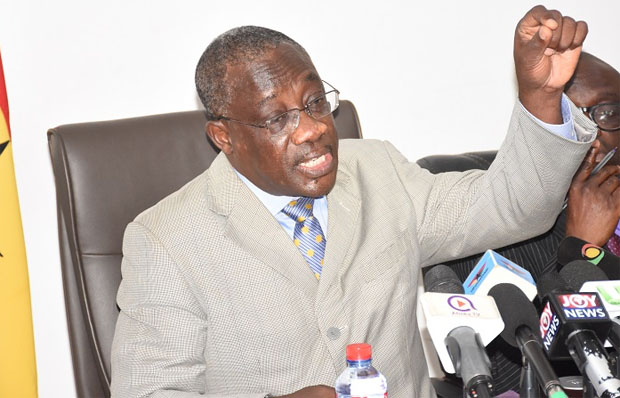Emmanuel Kofi Nti, GRA Boss
Finance Minister Ken Ofori-Atta has reiterated government’s resolve to effect important changes to both the management and personnel of the Ghana Revenue Authority (GRA).
According to him, “Such interventions will seek to improve the quality of the leadership of GRA and boost the performance, responsiveness and work ethics of the entire GRA workforce.”
He stressed that the rigorous performance management tools that government has started deploying would be driven to the end.”
BUSINESS GUIDE has learnt that management members of GRA, particularly those at the Customs Division, are on their way out due to revenue leakages and collusion with tax defaulters.
Punishment For Offending Officers
Mr. Ofori-Atta said irregularities and revenue leakages arising out of the dishonest behaviour of revenue officers would be addressed frontally, adding that “government will make it a regular practice to prosecute offending revenue officers for criminal collusion with unscrupulous taxpayers. In this, we will be resolute.”
Tax Debt Recovery
In respect of tax debt recovery, he said government had already prepared files to enable it to bring legal action against big tax defaulters.
“We will use various distress actions to retrieve tax liabilities from taxpayers who have a habit of defaulting on their tax obligations,” Mr. Ofori-Atta stated while presenting the 2019 budget to Parliament on Thursday.
Automated Tax
Furthermore, he said government would speed up the implementation of various automated systems to reduce human involvement in tax administration.
“These included Electronic Devices to deepen VAT penetration, the Excise Tax Stamp Policy, the harmonization of the automated systems at our ports of entry and other key systems, the implementation of which would be intensified next year.”
Tax exemptions
He said in the last eight years, tax exemptions (import duty, import VAT, import NHIL and domestic VAT) in the economy have grown from GH?391.90 million (0.9% of GDP) in 2010 to GH?5,269.99 million (2.6% of GDP) in 2017.
“It is important to indicate that these figures do not include exemptions from the payment of corporate and individual income taxes, concessions on tax rates, petroleum tax reliefs, customs tax exemptions enjoyed by diplomatic missions and processing charge exemptions at the ports.
“Over the same period, about six different studies have been conducted into Ghana’s tax exemptions regime by the Revenue Policy Division of the Ministry of Finance, International Monetary Fund (IMF), Organisation for Economic Cooperation & Development (OECD), GIZ and the World Bank.
Reforms
“All these studies have concluded that the growth in Ghana’s tax exemptions and reliefs is unsustainable, and the benefits Ghana’s economy gets from these exemptions and reliefs are doubtful.”
“Worse still, Mr Speaker, tax exemptions in Ghana have invariably provided the opportunity for abuse. But even without the irregularities, the exemptions in themselves, deny the country of much needed revenue, resulting in low revenue collection and reporting. These cannot be allowed to continue, which is why we have committed to reform the tax exemptions regime. The draft policy has been completed and will be presented to Parliament during 2019 to be passed into law.”
By Samuel Boadi


